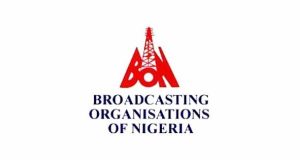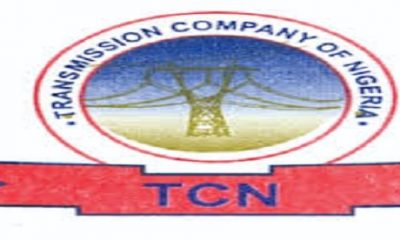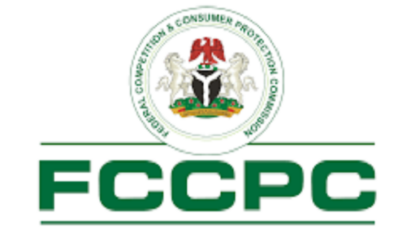Broadcasting
Bamgbose, BON Boss Faults FCCPC’sDdecision to Review DStv, GOtv Rates
Yemisi Bamgbose, executive secretary of the Broadcasting Organisation of Nigeria (BON), has faulted the decision of the Federal Competition and Consumer Protection Commission (FCCPC) to review DStv and GOtv subscriptions.

In a statement on Monday, Bamgbose said the commission had remained silent following the increase in prices of goods and services by big firms and companies — but intends to review prices of the pay-tv.
“I would have given FCCPC a thumb up if they had been intervening on price matters, most especially those that have direct bearing on the livelihood of the masses,” Bamgbose said.
“If the mandate of FCCPC includes price control of goods and services in a free and deregulated economy, where was the organisation when Bakers Association in the country increased the cost of a loaf of bread more than 200% in the last one year.
“I doubt if FCCPC was aware that a sachet of pure water has been increased from five naira to twenty naira the last one year. Is the organisation on vacation?
“Perhaps the organisation is on leave when bottling companies in the country astronomically increased the cost of malt and other soft drinks. I was surprised that FCCPC didn’t call stakeholders meeting to review the new prices.
“Perhaps the cost of a bag of cement has not been increased from four thousand Naira in the last one year. That must be the reason why FCCPC did not deem it fit to invite Dangote, Bua and Lafarge cement manufacturers with relevant stakeholders to discuss the more than 100% increase on a bag of cement.
“Aviation sector, on a daily basis, increases the cost of domestic flights. This also has not attracted the attention of FCCPC.
“In the education sector, I was wondering why FCCPC could not call for the review of the cost being charged by private educational institutions especially those charging in dollars in a country where Naira is the legal tender.”
According to Bamgbose, if other services are allowed to increase their prices, MultiChoice should also have the freedom to determine the price of its products to maintain high-quality service.
She added that the choice of whether or not to subscribe to the service should be up to the consumer.
The secretary said subscription television is not an essential commodity and those who cannot afford the services of MultiChoice or any pay TV can decide not to subscribe.
“Anyway, on the part of broadcasting, I want to assume that FCCPC does not know what goes into the business of broadcasting, perhaps, that could inform the decision of the agency to plan the proposed review of the increase in the price of DSTV and GOTv pay TV channels respectively,” she said.
“There are free to air stations such as NTA, RADIO NIGERIA, AIT, SILVERBIRD CHANNELS, STATE OWNED RADIO AND TV STATIONS, PRIVATE RADIO STATIONS etc where consumers don’t pay to listen to radio or watch television.
“There are subscription channels such as MULTICHOICE, GOtv, TNtv, STARTIMES etc where viewers pay to watch and listen. There are choices.
“During Covid-19 pandemic, stations burnt diesel without adverts or other sources of revenue for more than twelve months in national interest.
“The cost of diesel rose from two hundred naira per litre in 2021 to one thousand seven hundred per litre in 2023/24, and broadcast stations have to transmit for twenty four hours changing from one generator to the other.
“None of the national stations such as Channels TV, Arise, TVC, AIT, Silverbird, and NTA, amongst others, commits less than one hundred million Naira on diesel on monthly basis to keep their mandate of information, education and entertainment.
“It may interest the public to know that many, if not all, of the national radio and television stations in Nigeria have not been able to break-even since 2020 when the nation’s economy was shut down as a result to Covid-19 pandemic.
“Why? Each network station that transmits 24 hours consumes not less than twelve thousand litres of diesel per week. In Nigeria, we want everything free.
“For MultiChoice to provide coverage to the nooks and cranies of the country, it maintains over three hundred sites powered with diesel generating sets in each of the sites.
“The public should also know that these PAYTV companies purchase all these contents that subscribers watch at the comfort of their homes and offices.
“Those who can not afford the services of MultiChoice and indeed any pay TV can decide not to subscribe, afterwards, there are many free to air television channels and content on satellites OVER THE TABLE (OTT) that can be accessed through free to air decoders and wifi.”
Recall that on April 24, Multichoice Nigeria announced an increase in the cost of subscriptions for its DStv and GOtv packages.
The pay-tv firm cited the rise in cost of operations as the rationale behind the price increase.
Broadcasting
Copyright Commission Warns School Proprietors Against Pirated Books
AS the Nigerian Copyright Commission (NCC) intensifies its public awareness campaign, school proprietors in the FCT have been advised to exercise due diligence by procuring books from legitimate sources to curb copyright infringement and help sanitise the book value chain.

This was disclosed by Mr. Emeka Ogbonna, the Director Operations, NCC, in his address at the General Meeting of National Association of Proprietors of Private Schools (NAPPS), FCT held at Veritas University, Abuja on 9th October, 2024.
Speaking to the participants, Mr. Ogbonna acknowledged the contributions of the proprietors to the educational development of the nation, emphasising the need for wholesome practices to protect the book ecosystem. ‘’If you must sell or distribute books, ensure you get them from the right sources”, he cautioned.
He said the warning was imperative in view of complaints from right owners and publishers about schools selling pirated books. He stated that the NCC is not opposed to schools selling books, but maintained that due diligence must be exercised by ensuring that all purchased books are properly documented with authentic receipts.
Sensitising the school proprietors further on the tenets of the new Copyright Act 2022, the Director said it is a criminal offence to sell, distribute or be in possession, other than for private or domestic use, works that are pirated. Harping on the stiffer punishments prescribed for offenders by the new Act, he said schools selling or distributing books will be treated as booksellers and subject to the same standard of care.
The NAPPS FCT President, Mrs. Ruth Agboola, commended the NCC and other government agencies in attendance and lauded the Management of Veritas University for hosting the event.
The meeting was also attended by the Vice-Chancellor, Veritas University, Abuja, Rev. Fr. (Prof) Hyacinth E. Ichoku and other officials of the University.
Broadcasting
TETFund Suspends Foreign Scholarships Due to Rising Costs and Abscondment
Tertiary Education Trust Fund (TETFund) has announced the suspension of the foreign component of its TETFund Scholarship for Academic Staff (TSAS) Intervention, effective January 1, 2025.

This decision, outlined in a letter dated November 25, 2024, and signed by TETFund’s Executive Secretary, Arc. Sonny Echono, cites the escalating cost of overseas training and an increasing number of scholars absconding as reasons for the suspension. The letter was addressed to heads of beneficiary institutions, including vice chancellors, rectors, and provosts.
“In response to the current excessive cost of training in foreign institutions, coupled with the high rate of abscondment of scholars, the Board of Trustees of the Fund has approved the suspension of the foreign component of the TSAS Intervention,” the letter stated.
TETFund has directed beneficiary institutions to prioritize local training within Nigerian universities, polytechnics, and colleges of education. This shift, according to Echono, is aimed at reducing pressure on foreign exchange, enhancing local capacity, and significantly increasing the number of beneficiaries.
“It is expected that this will conserve and reduce pressure on the foreign exchange rate, boost investment and local capacity in our institutions while significantly increasing the number of beneficiaries of the intervention,” Echono wrote.
However, scholars already enrolled in foreign institutions under the TSAS programme will continue to receive sponsorship until they complete their studies, ensuring a smooth transition for ongoing commitments.
Broadcasting
Copyright Commission Pledges Support to Creatives on Contracts
Dr. John O. Asein, the Director-General, Nigerian Copyright Commission (NCC), has restated the Commission’s commitment to supporting all sectors of the creative industry to reward creatives and boost the nation’s economy.

The DG NCC stated this while receiving 2024 finalists of the National IP Creative Essay Competition, organized by the World Intellectual Property Organisation (WIPO), Nigeria Office who paid a study visit to the Commission recently.
Pointing to the issue of contracts as one area that is being looked into, he emphasized that contracts should be fair and transparent with terms that are not unreasonable, enslaving or unduly onerous.
While acknowledging the long and tortuous process of statutory reform, Dr. Asein assured right owners and other stakeholders in the creative industry that the commission has commenced the process of reviewing the recently passed Copyright Act with a view to identifying areas of improvement.
In the meantime, he announced that the Commission will be putting in place administrative mechanisms to help right owners, through the provision of model contractual clauses, better negotiate and conclude contractual terms.
The Director-General also informed the visitors that the Commission has Alternative Dispute Resolution facilities to help right owners settle copyright disputes.
Congratulating the essay finalists, Dr. Asein used the opportunity to announce their induction as Copyright Ambassadors and urged them to be good representatives of the Commission and the copyright industry.
Dr. Tobi Moody, Director, WIPO Nigeria Office and leader of the delegation, informed the Commission that a total of 256 students from 68 tertiary institutions in 27 States entered for the competition, with a winner and 19 finalists emerging.
Dr. Moody disclosed that the Competition is in line with WIPO’s policy of encouraging students to research and be actively involved in Intellectual Property (IP) matters. He assured that WIPO will support the finalists with capacity building prizes and opportunities to further strengthen their engagement in the field of IP.
The theme for the 2024 essay competition is “IP and Sustainable Agriculture: Combating Food Insecurity in Nigeria”.
Mr. Ikenna Mba, a year-four law student of the University of Nigeria, Nsukka emerged the overall winner of the competition while Mr. Chinonso Izundu, a year-five law student of the University of Port Harcourt and Mr. Adekunle Olajide, a year-four law student of University of Ilorin, were first and second runners-up respectively.

 Telecom2 days ago
Telecom2 days agoGoogle, Meta Criticize Australia’s Rush to Pass Social Media Ban for Under-16s

 E-Business3 days ago
E-Business3 days agoNITDA Alerts Nigerians on Cybersecurity Risks Linked to Spotify

 E-Financial16 hours ago
E-Financial16 hours agoMoneyMaster Promotes Financial Inclusion, Offers more Bonus to Customers

 News2 days ago
News2 days agoTCN Reveals N8.8 Billion Expenditure on Restoring Destroyed Transmission Towers

 Telecom3 days ago
Telecom3 days agoFG Plans Four New Satellites as Part of Tinubu’s Renewed Hope Agenda

 Telecom3 days ago
Telecom3 days agoMTN Nigeria Shops for N50Bn Commercial Paper to Boost Working Capital

 E-Financial2 days ago
E-Financial2 days agoPenCom, PenOp to Integrate Uncovered Workers into Micro Pension Plan

 News3 days ago
News3 days agoAsein, DG NCC Seeks IP Policy for Every University

























